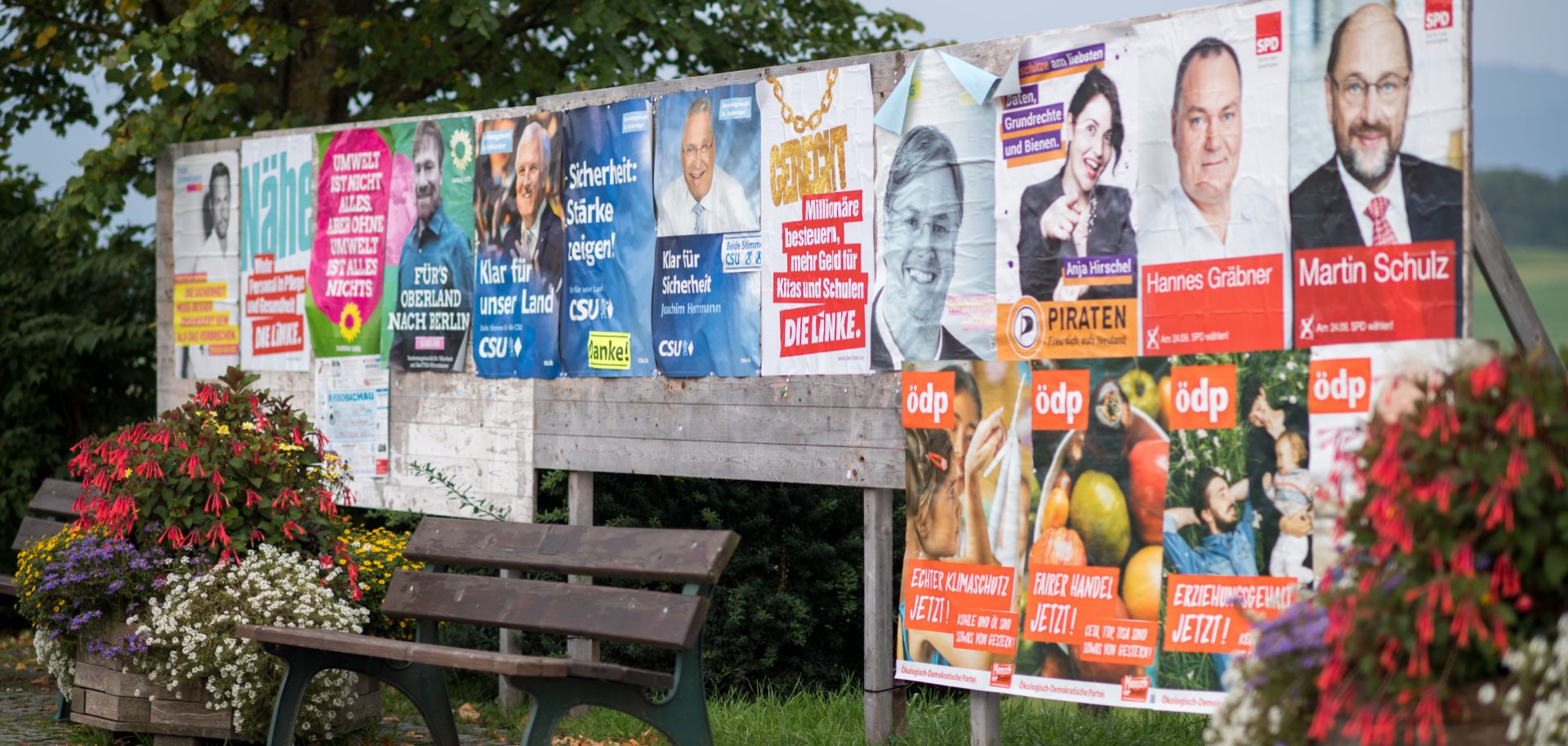REFLECTIONS
The Winners and Losers in Germany's Elections
Sep 25, 2017 | 16:39 GMT

Campaign placards for various parties are seen during German federal elections on Sept. 24, 2017 near Bayrischzell, Germany. Chancellor Angela Merkel's conservative Christian Democratic Union (CDU) won the largest portion of the vote, while another five parties received enough support to gain seats in parliament. With so many voices earning a say, the negotiations could take weeks if not months. The rest of Europe will be following them closely: Germany's domestic concerns may impact the future of EU reform.
(Lennart Preiss/Getty Images)
Subscribe Now
SubscribeAlready have an account?
